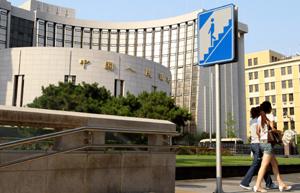NEW YORK - Western publishing companies continue to face problems in penetrating China's vast book market as well as getting Chinese books into the United States, industry insiders say.
Publishing companies report vast differences between Western and Chinese methods of marketing and distributing, and while US companies have had some success in selling US material to bilingual audiences, most of the money to be made in China will not be with English material, experts say.
Additionally, very few Chinese-written books have made a successful leap into the US.
But at least one US publishing company is now searching for Chinese partners, based on a belief that cross-cultural guidance is the only way Chinese and US companies can succeed in crossing over the two markets.
Berkshire Publishing Group, a relatively small reference book publisher in Massachusetts, has been making moves to expand into China in a way that CEO Karen Christensen said will go beyond the usual "copyright exchange" that defines US-Chinese publishing cooperation.
"No Western company is going to be successful without Chinese partnership," Christensen told China Daily.
"There are aspects of Chinese consumer expectations that I can't quite get right, and the same can be said for the big Chinese companies trying to get distribution in the West.
"You need intermediaries."
Until fairly recently, the Chinese government managed the publishing industry, but Christensen believes a major cultural change is occurring with newly privatized publishing companies that will allow for enormous growth.
Over the past year she has met many Chinese companies in hope of finding partnerships, and is also reaching out to Chinese scholars and authors to try to find Chinese-written material that will appeal to Western audiences.
"The mission is to get more Chinese material into the hands of people outside of China," she said.
"Up until now, far more Western books are going into China than there are Chinese books coming out.
"The Chinese publishers I've met over the last few years have all been struggling the entire time. Going both ways is a real challenge."
Toby Eady, managing director of London literary agency EADY Associates, believes poor translation has been a key in slowing down the potential crossover of Chinese literature into the US, but also blames cultural attitudes.
"The worst market for Chinese-translated books is America," Eady told China Daily. "It's been the least receptive market for Chinese literature.
"America's problem is the same as England: We are dominated by our language.
"We take our language as No 1, but so does China, and Chinese is an incredibly difficult language to translate."
In the past, the books that have enjoyed some success in the US have generally been about the history of China, Eady said.
Christensen and Eady believe Chinese popular fiction has a shot in crossing over into the US, but the move will require a deeper understanding of Western audiences and vice versa.
"One has to hope that if someone with a Western eye were helping the Chinese publishers look at submissions, a book would sell internationally," Christensen said.
Marketing has also been a major issue for Chinese publishing companies attempting to enter the US, she said.
"In terms of the marketing side and the sales channels, I think that the Chinese would acknowledge that we are ahead."
US publishing companies invest a lot of money in online and e-mail marketing, and specific targeting of book clubs and focus audiences.
James Chan, a consultant with Asia Marketing and Management who has been involved in the Chinese publishing industry since 1981, believes the Chinese industry suffers from a deficiency of high-level bilingual and bicultural marketing experts.
"Chinese companies need to understand that to make the West relate to China, they will need to train savvy marketers," Chan said.
On the other hand, Western companies are often ignorant of the Chinese market, he said.
 Credit supply may top govt targets>
Credit supply may top govt targets> 

